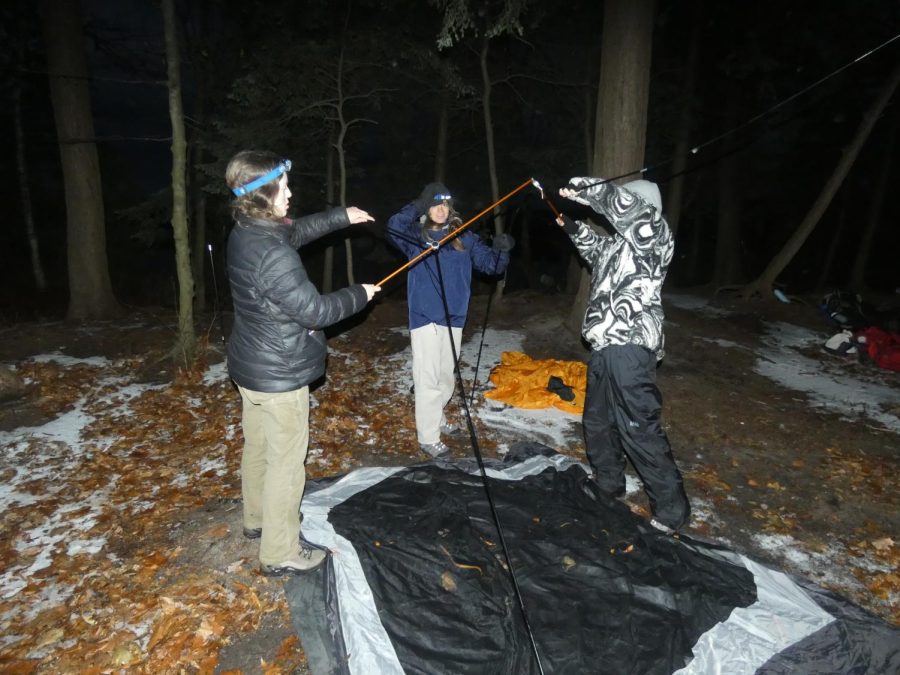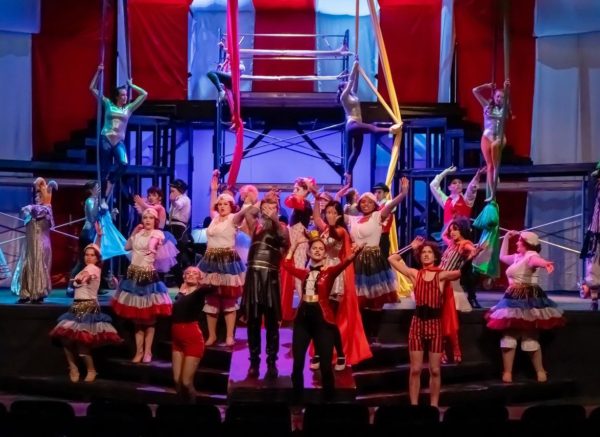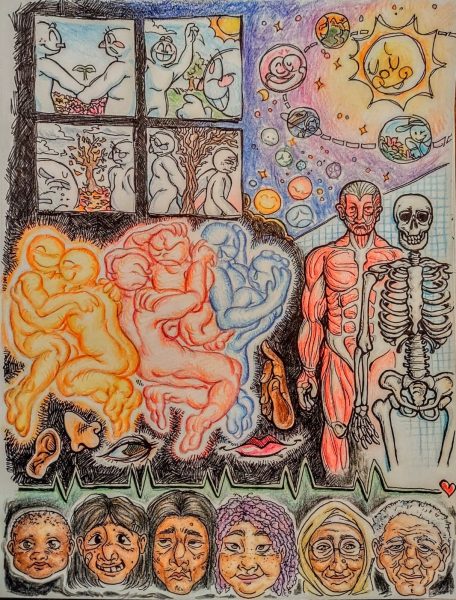ELS students go on annual backpacking trip
This past month, six students in English Literature and Science (ELS) traveled up to Newport State Park for their annual backpacking trip. The excursion lasted three days and consisted of hiking, camping, and cooking.
“It was basically as far north as you can get on the mainland of Door County, and is technically considered a wilderness area,” said Eleanor Bennett, junior.
Newport State Park is Wisconsin’s only international dark sky park, meaning it has exceptional starry nights and minimal light pollution. In addition, the northern lights are often seen at night from the clear skies.
During the trip, students worked together to carry and fit all of their supplies needed for two nights.
“Backpacking is essentially self-supported camping where all of your supplies from food, clothing, [and] tents are carried in a backpack from one campsite to another,” said Eric Mathews, ELS and science teacher.
After the four hour drive from the high school, the group parked the van two miles away from the first campsite and gathered everything on their backs.
“[We] learned how to manage all the gear that we had to bring, how to pack appropriately and size your backpack correctly to your body, so that it is as pain-free and comfortable as possible,” Bennett said.
Dinner consisted of wraps with rice, tuna, and spinach. Students were paired up to cook, make fires, and set up or take down tents at the campsite.
Nathan Cumberbatch, senior, believes that the trip allowed him to converse with other students that he wouldn’t usually talk to.
“We would make dinner all on the ground, sitting in a circle… [We had] some really nice conversations around the fire. It was a lot of time spent with these people and getting to know them,” Cumberbatch said.
In the morning, a campfire was set up and students began making breakfast together, taking down tents, and packing for the hike to the next campsite on a small lake.
“We hiked out of our first campsite along the shore of Lake Michigan, and that ended up being about five and a half or six miles in total hiking,” said Mathews. “That took us past beaches [and] it took us through a boreal forest.”
After the second night, the group unpacked their supplies in the morning and drove back. Overall, the students had an amazing camping experience, despite the cold temperatures.
It was a lot of time spent with these people and getting to know them.
— Nathan Cumberbatch, senior
Before every ELS trip, the coursework focuses on aspects of the environment through science experiments and literature that are unique to that area.
“Mr. Gietzen in particular started getting the gears turning in each of the students’ heads about writing a poem about a particular tree that they chose. I wrote mine on a tree called Muscle Wood and they held a poetry session,” Bennett said.
Due to the small class size, the students were able to be exposed to engaging conversations.
“We were discussing the Wilderness Act of 1964, and each small group in the class had a different perspective to analyze in a presentation…we studied the legal framework of the Wilderness Act,” said Bennett. “It was more of a discussion rather than a presentation. Other students would chime in and I found that to be very engaging.”
Students were also able to identify plant species and rock formations, and observe the unique environment surrounding them while backpacking.
ELS is a one-semester elective course that offers one credit in English and Science. It is one of the only block classes offered which means it takes up two periods everyday. Mr. Gietzen focuses on the literature aspect of the class, while Mr. Mathews teaches the science portion.
So far this semester, the class has already been rock climbing in Devils Lake and surfing in Kohler-Andrae State Park.
“We try to do as much learning as possible outside of a four-walled classroom as we can and at the end of the day,” Mathews said. “It’s really those experiences combined with our hybrid approach to teaching that makes ELS such a unique experience.”



